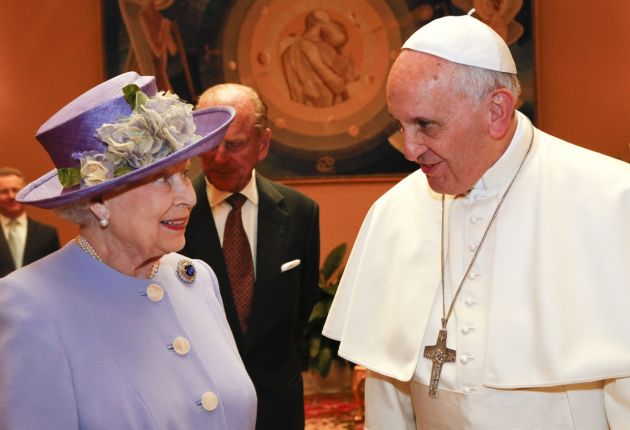Most Britons say their country is Christian, but participation is low: survey

Despite a national decline in religious observance, slightly over half of Brits continue to see the United Kingdom as a Christian country, but religiousness is low, a new study has found and it is very low in the 16-24 age group.
The survey reveals that Christian Britain in more of a self-perception than a praticed reality.
YouGov, a UK international internet-based market research and data analytics firm, found that while most British people celebrate Easter and Christmas, the majority do so in a secular way.
"Religiousness is also low – with over half of Britons (55%) saying they are not a member of any religion. Even amongst those who are religious, just over half say they believe there is a god," found You.
Just over half (56 percent) of Britons say the UK is a Christian country.
"This view is held by seven in ten (69 percent) British Christians. The 16-24-year-old generation is split -- 41 percent say Britain is a Christian country, whilst 39 percent say it isn't," the poll found.
"Our study has found that whilst the majority of Britons celebrate both Christmas and Easter, most do it in a secular way," says YouGov.
It noted that there is a generational divide to the holiday that is more important in the Christian calendar.
"For those who celebrate, Christmas is more important than Easter. Whilst the majority of Britons think that the religious aspects of Christmas/Easter celebrations are on the decline, a minority would like to see this reversed."
Older Britons are more likely to see Britain as a Christian country, with 53 percent of those aged 25-39, 59 percent of those in their 40s and 50s, and 61 percent of those aged 60 and above holding that view, reported Premier Christian News.
Amongst younger citizens, the number drops - 41 percent say it is a Christian country, whilst 39 percent say it isn't.
There is also a general agreement that both Christmas and Easter should remain as national public holidays - a view held by those who are both religious and non-religious.
Around eight in 10 Britons (82 percent) say that the religious aspects of Christmas celebrations are declining, with seven in 10 (72 percent) saying the same of Easter, the poll found.
CHRISTMAS AND EASTER IN DECLINE
Around four in 10 (40-42 percent) who think the religious significance of Christmas and Easter is in decline say this is a bad thing, while 18 percent say it is a good thing
Yet, just 4 percent of Britons who celebrate Christmas do so in a religious manner, whilst for six in 10 (61 percent) it is a completely secular event.
Three in ten (31 percent) combine the two aspects.
"Easter is marked in a religious fashion by 10 percent of those who observe this holiday, 56 percent have a secular celebration and 29 percent combine the two.
Just over a quarter of Britons (27 percent) follow the Pope's Christmas and Easter messages. A third (32 percent) pay attention to the Christmas/Easter messages by the Archbishop of Canterbury, the Anglican leader.
Just over half of those surveyed (52 percent) consider the story of the birth of Jesus Christ to be historically inaccurate, whilst 31 percent think it's accurate.
Among British Christians, over a quarter (27 percent) say they don't believe in the accuracy of the Christmas story.